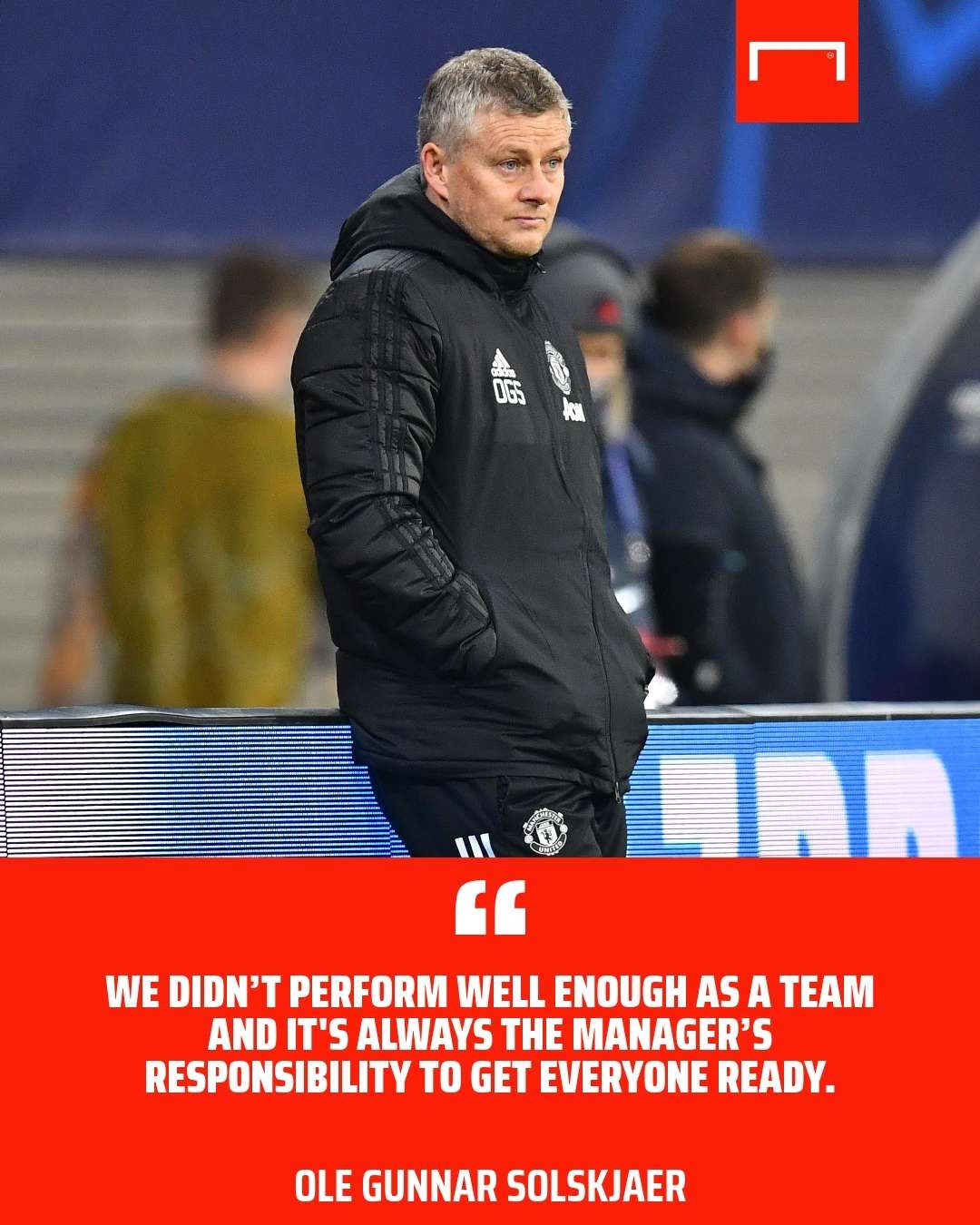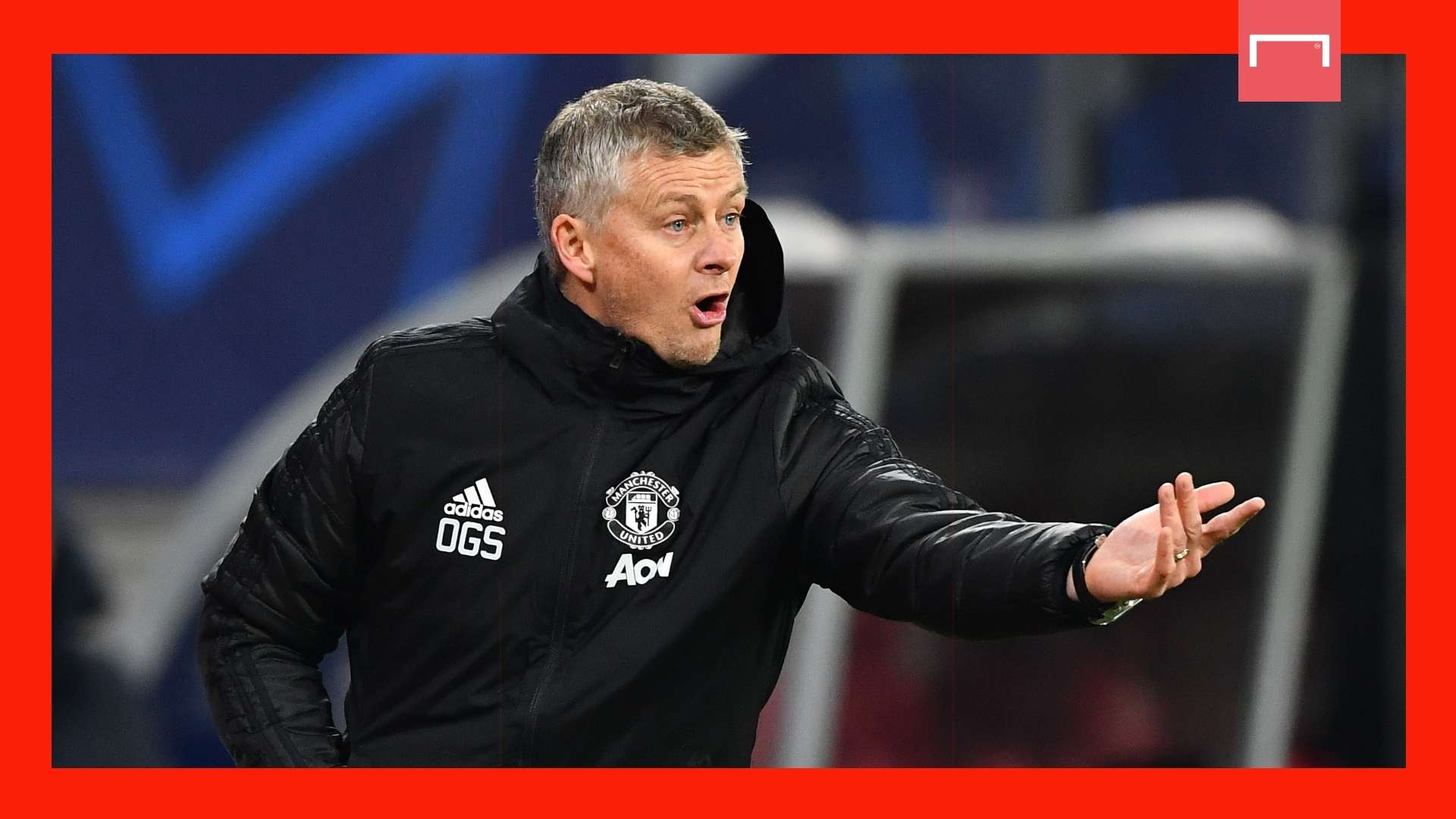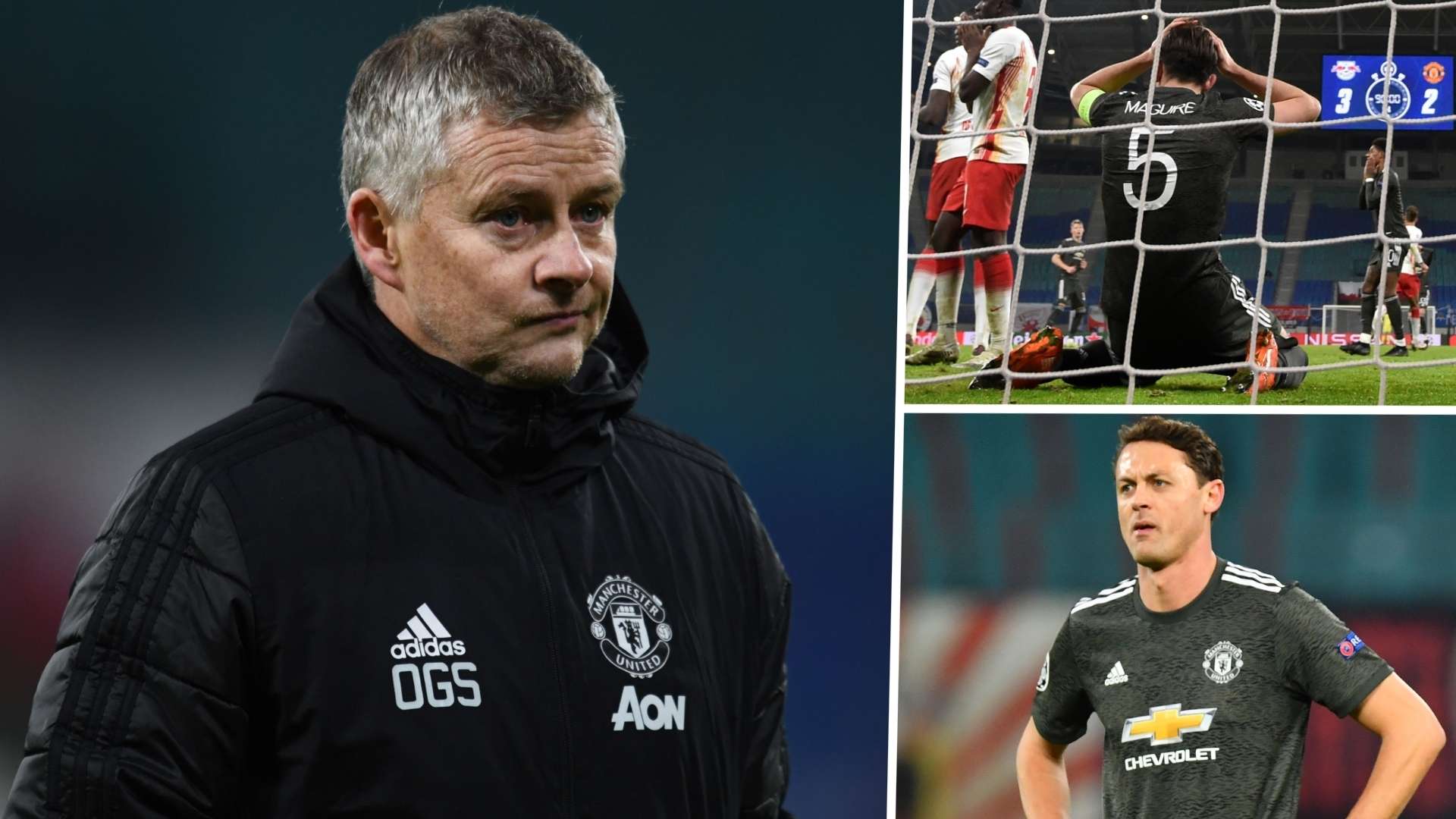As Harry Maguire's shot at glory was snatched away by Peter Gulasci, the Manchester United club captain let out a frustrated scream.
The centre-half was perfectly placed to score the goal that would have secured the draw at RB Leipzig that his side needed to progress to the last 16 of the Champions League.
However, Gulasci's last-ditch interception meant a return to the Europa League for United's devastated players. We shouldn't have been surprised, of course. It's always been a case of one step forward, two steps backwards for Ole Gunnar Solskjaer's team.
Next week marks two years since the Norwegian replaced the sacked Jose Mourinho as manager but can we really say that there has been much progress since?
His win rate after 108 games in all competitions is 55.6 per cent, which is lower than Mourinho’s (58.3%), but better than those of Louis van Gaal (52.4%) and David Moyes (52.9%).
Context is key with those figures and while Solskjaer is not top of the statistics table for post-Sir Alex Ferguson managers, the general feeling is that he has improved things at the club.
The atmosphere at the training ground and in the dressing room are certainly better, he is nurturing the young talent and pushing them through to the first team, and the club's reputation for fast, attacking football, which went missing under Van Gaal and Mourinho, has been restored.
The problem, however, is that there does not appear to be a structure or plan in place to put United back on their perch. They finished an impressive third last season but were miles away from challenging for the title.
“We didn’t perform well enough as a team and it’s always the manager’s responsibility to get everyone ready,” Solskjaer said after the defeat to Leipzig. “We knew they were going to come at us and put crosses in the box but, unfortunately, we never got going and conceded two early goals [from crosses]."
 Getty/Goal
Getty/Goal
While it was noble of the manager to take responsibility for the result, it was concerning to hear him admit that United had been undone by a tactic that they had specifically discussed and worked on nullifying before the game.
It just doesn’t make sense and it's certainly not a good look for Solskjaer. What are we to derive from such a revelation? Are the players not listening to their manager's instructions? Was the message not delivered well enough? Or were the players simply not focused?
This isn’t the first time during Solskjaer’s tenure that training ground plans have come apart during games. The ability to defend set-pieces seems to have gone out of the window and there appears to be no strategy for breaking down teams that sit deep.
For the first hour against West Ham in the Premier League last weekend, many were left wondering if United's players had been given any guidance at all. The midfield and front three may have been playing together for the first time but there was no excuse for the entire team playing like 11 strangers.
Just as they had at Southampton the week before, half-time substitutions turned the game on its head, but the question remains: why can’t United get things right from the very first whistle?
Of course, there have been tactically astute performances over the past two years which have seen the team pick up big results against the likes of Paris Saint-Germain, Manchester City and even Leipzig in the home game, but United are blighted by inconsistency.
 Getty/Goal
Getty/Goal
Two years after Solskjaer's arrival, his side does not appear to have a coherent plan, so when City arrive at Old Trafford on Saturday afternoon, who knows what system the boss will select?
United played with a back three in the 2-0 win over their city rivals back in March but that cautious set-up, coupled with an ongoing inability to defend crosses into the box, cost them dearly in Germany in midweek.
Maybe Solskjaer will opt for a diamond again. Maybe it will be his favoured 4-2-3-1, which has been his most successful formation.
However, the constant tinkering could well be harming his chances of getting his team playing well on a regular basis. After all, how can the players settle into a system if the plan and the personnel are changing from week to week? And without consistency, improvement is impossible.
Despite Tuesday night’s result, it would not be a shock to see United win at Old Trafford on Saturday evening, but they will need to rely on more than just team character and fight to get them over the line against a resurgent City.
Furthermore, a derby win won’t prove United are progressing under Solskjaer, even if it is essential to show that they are moving in the right direction.
Consistency, both in terms of tactics and team selection, is the key to this United side succeeding at the highest level.
Sadly, though, on the evidence of the last two years, it doesn’t seem like Solskjaer is any closer to finding the solution to that persistent problem.




